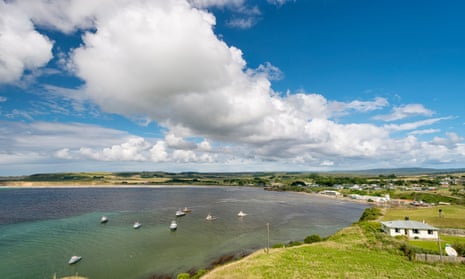After nearly two years of dodging Covid-19, one of the most remote inhabited places in the world has recorded its first ever cases of the virus.
Rēkohu, or the Chatham Islands, are just over 800km east of New Zealand’s mainland and are home to roughly 600 permanent residents.
The Canterbury district health board (DHB) confirmed two of its residents had tested positive for the virus over the weekend and were now isolating and being supported.
The streets of the largest settlement, Waitangi, were quiet on Monday, with very few people around, Chatham Islands mayor Monique Croon said. “Some people are really worried, and for others, they are prepared and quite comfortable.”
“It’s certainly not the best of news but we have prepared for this.”
Croon could not give further detail about the cases, only that one person who tested positive had been off the islands.
New Zealand has recorded a rapid rise in cases since the Omicron variant arrived in the country in January. It reported 17,522 cases on Monday, with 696 people in hospital.
Like other island territories and nations that have evaded the pandemic, including Nauru, Pitcairn Islands and Tokelau, the Chatham Islands have benefited from an ocean border, but unlike those nations which have also gained from strict border controls, the Chatham Islands are part of New Zealand, and residents and mainlanders are free to come and go.
Croon said the community had considered the possibility of creating its own border protection, but that the council had made it clear it wanted to follow New Zealand’s national directives for the pandemic response. “That has been really effective for the island.”
The community has been vigilant in following pandemic policies since the beginning, including hand washing, contact tracing, lockdowns and social distancing, Croon said, despite not having had a case up until this point.
The islands are prepared for the possibility of widespread transmission, with iwi (tribes), council and health officials meeting every week to plan for an outbreak, she said. “The introduction of rapid antigen testing is really key to getting quick early detection, and it’s going to be available to everybody in the community. We also know who is vulnerable in the community, and if some of our vulnerable people get infected, they will probably be flown off island.”
The health board’s Dr Helen Skinner said the DHB would be distributing rapid antigen tests to all households on the islands this week, and the islands’ health centre would be offering vaccinations. Just 56% of the community has been boosted, compared to the national average of 73%.
“We encourage anyone who isn’t vaccinated or hasn’t had their booster to get vaccinated as soon as possible,” Skinner said.
